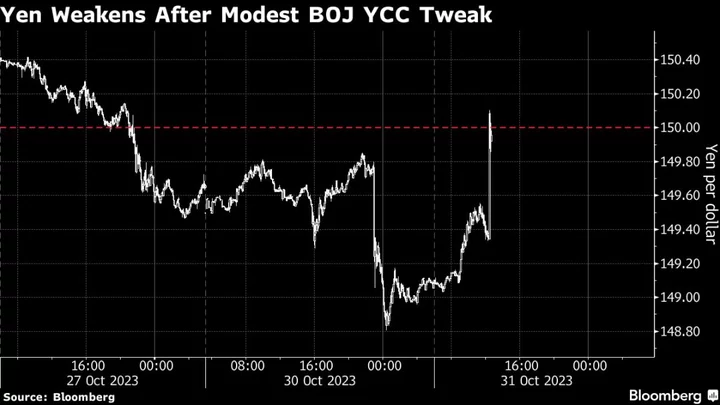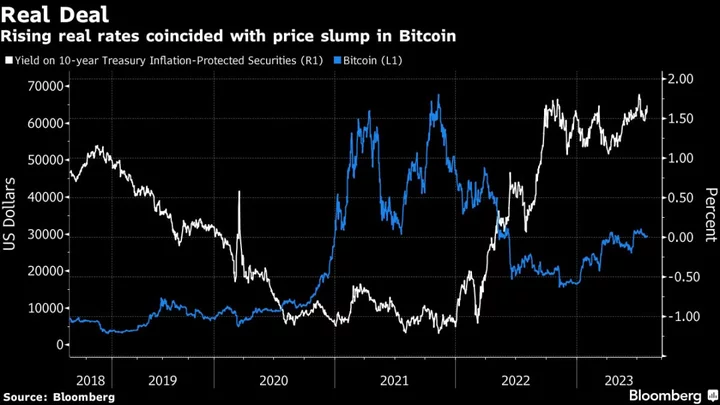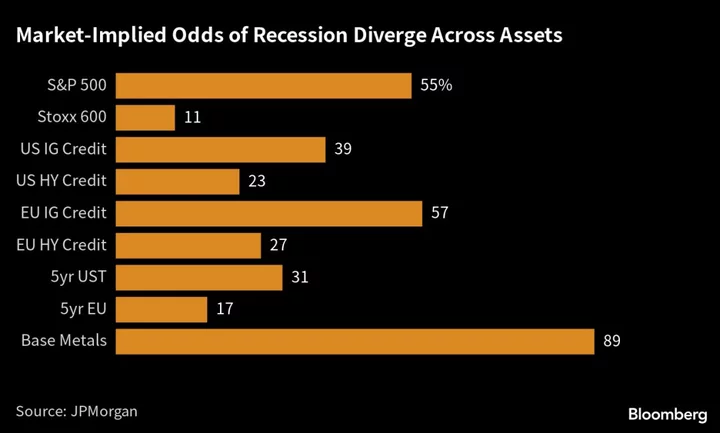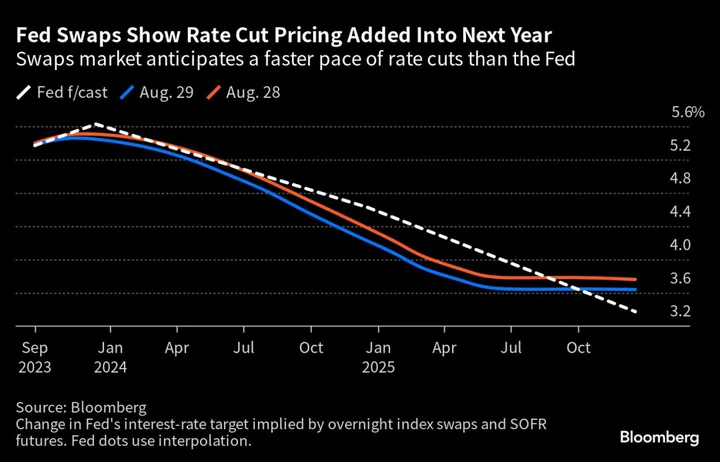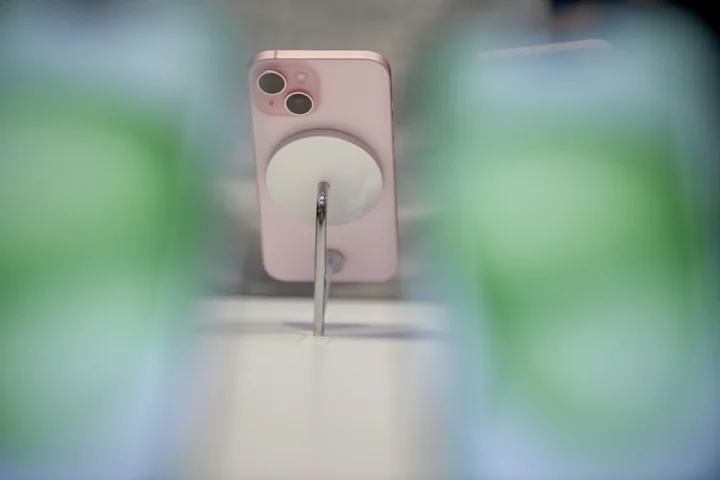The Bank of Japan further loosened its grip on government bond yields while continuing to stick with its negative interest rate in a decision that prompted a retreat in the yen.
The BOJ said it will take a more flexible approach to controlling yields on 10-year government debt, saying the 1% level was a reference point, according to its statement Tuesday. That marks a shift from a previous pledge of daily bond purchases at 1%, a stance that effectively drew a clear line in the sand there.
The central bank also raised all its price forecasts, but emphasized the need to keep policy easy as it waits for more signs of sustainable wage and price growth.
The decision disappointed investors expecting a clearer sign of policy normalization which could have boosted the under pressure currency. It also left others confused about the central bank’s intentions.
“My first impression is that this policy adjustment is tough to comprehend,” said Hideo Kumano, economist at Dai-Ichi Life Research Institute, flagging the lack of detail on what a 1% reference point meant and the circumstances under which the BOJ would buy Japanese government bonds at a fixed rate.
“In a nutshell, we don’t know how tightly the BOJ wants to control long-term yields. This is an ambiguous strategy,” he said.
The yen had strengthened overnight after the Nikkei first reported a likely move to allow yields to edge higher, but the Japanese currency weakened beyond the key psychological 150 mark against the dollar after the actual decision. That suggests market players still see the BOJ very much committed to a stimulus stance that marks it as an outlier among global central banks.
Earlier Japan’s 10-year yield jumped at the start of trading to a fresh decade high of 0.955% before paring gains.
The decision comes amid a new global central bank mantra of elevated interest rates for longer. While the European Central Bank kept rates unchanged at its meeting last week and the Federal Reserve is expected to hold policy unchanged on Wednesday, both have indicated that high rates will remain in place for some time to come.
The BOJ remains the only major monetary authority sticking doggedly to negative interest rates as it seeks to spur inflation while the rest of global central banking community looks to suppress price pressures with tighter policy.
The BOJ said that strictly capping long-term interest rates via its fixed-rate buying operations at 1% each day would have a strong impact, but could also have large side effects.
“Given this, it decided to conduct yield curve control mainly through large-scale JGB purchases and nimble market operations,” the BOJ said.
The consensus among economists in a survey that closed last week had been for the BOJ to stand firm in the face of market pressure that pushed the yen to fresh year-to-date lows against the dollar and ratcheted up yields close to the 1% mark.
Three quarters of the 45 economists surveyed by Bloomberg forecast no policy change prior to further moves in bond and currency markets and inflation readouts that fueled speculation of tweaks to come.
If the shift was partly aimed at boosting the yen, it appeared to fail in that respect. But in terms of keeping YCC in operation before a more meaningful change in policy in the coming months, the move may have bought the BOJ some time.
“BOJ is still inching towards policy normalization, but the step in terms of YCC tweak falls short of speculation of bolder change, according to Moh Siong Sim, FX strategist at Bank of Singapore. “We think there will be scope for the yen to significantly outperform in 2024 when we expect the Fed to cut rates and the BOJ to speed up normalizing policy. Focus shifts back to currency intervention watch for now.”
Governor Kazuo Ueda has indicated the importance of sticking with ultra-easy policy to nurture the economic recovery as the bank steadily approaches its long-sought inflation goal. In particular he has cited the importance of strong wage growth to support a positive inflation cycle before pivoting on policy. Economists expect that move to come early next year.
What Bloomberg Economics Says...
“We think this is designed to relieve pressure on the framework — not a fundamental pivot from the BOJ’s dovish policy stance. The central bank also said it might increase the amount of its JGB buying operations.”
— Taro Kimura, economist
For the full report, click here
The BOJ upgraded its inflation projections, saying it now expects a key price gauge to stay well above its 2% target for three consecutive years through fiscal 2024, a stretch that includes the actual figures from the last fiscal year. The nation hasn’t seen such steady price growth since 1992.
The new forecast projects 2023 price growth at 2.8%, in stark contrast to the BOJ’s initial 1.1% projection issued soon after Russia invaded Ukraine last year. The bank expects the same pace of price growth in the following year, too. But in the final year of the projection period it sees inflation weakening below 2%, a factor that it may use to justify continued caution on changing policy.
--With assistance from Yoshiaki Nohara and David Finnerty.
(Adds analyst comments and more details from release)

